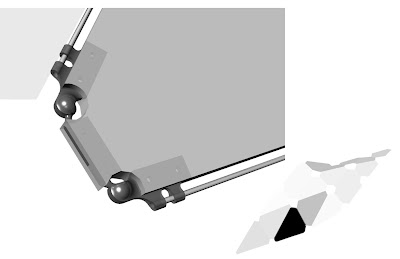
Friday, December 12, 2008
Monday, November 24, 2008
Monday, November 17, 2008
Sunday, November 16, 2008
Wednesday, November 5, 2008
Monday, October 27, 2008
Sunday, October 26, 2008
Thursday, October 23, 2008
Course Description
Special Topics in Fabrication
COMPONENT SYSTEMS: ADVANCED FABRICATION
Columbia University
Graduate School of Architecture, Preservation and Planning (GSAAP)
Visual Studies Fall 2008 / Session B
Component Systems will emphasize the integration and specialization of each machine within the GSAPP's Fabrication Lab and Output shop in order to create a detailed skin and support system. These systems will be designed at the scale of a small pavilion with the intention that this class will act as a microcosm of the design studios. This course will stress the importance of both the production sequence (i.e. which machines are most capable of producing the desired elements) as well as means and methods of assembly (i.e. how will each element be combined in order to realize the final component). All projects in this class will be built at full-scale and rigorously prototyped. The intention of this class is to teach students how to successful design, prototype and build an architectural skin and support system as well as produce a set of fully annotated shop drawings
Each project should engender both the tectonic qualities of the support system as well as the more ephemeral capabilities of the skin system. These two systems may be adapted for either interior or exterior conditions; may be calibrated to transmit or obstruct light; may emphasize a repetitive condition or each be unique; may be static or kinetic in their functionality; or may express or repress the structure of the detail. Further, all components are to be refined at a high level of finishing, moving at least two degrees beyond their respective initial machining processes. Lastly, all operations are to be documented in material and procedural terms, as an open source to contribute to collective efforts of the Digital Fabrication Lab.
Students should have experience in a 3D modeling software package (Rhino, 3DMax, Maya) and CAM/CAD software to interface with the CNC equipment.
















.jpg)

.jpg)

























